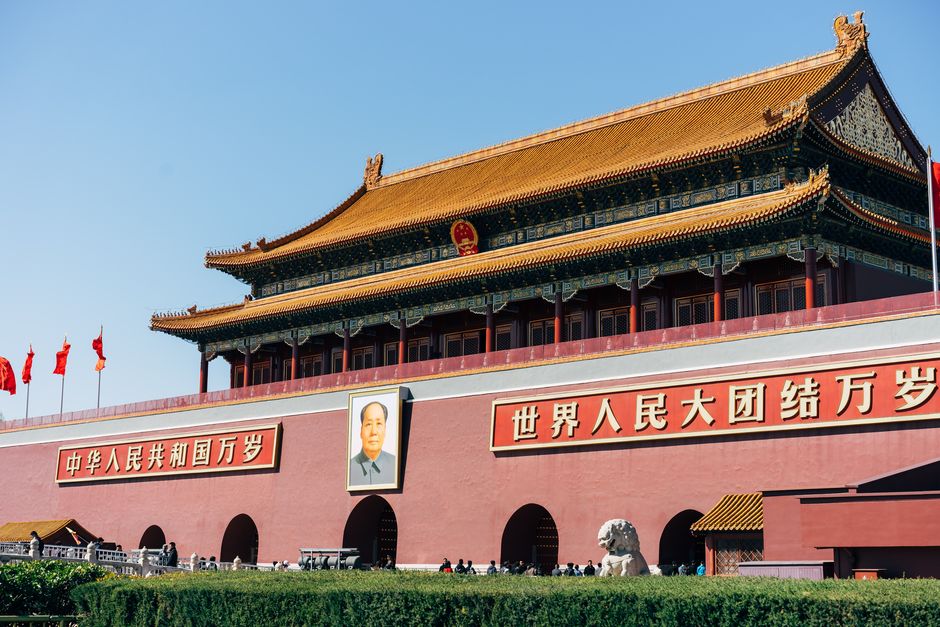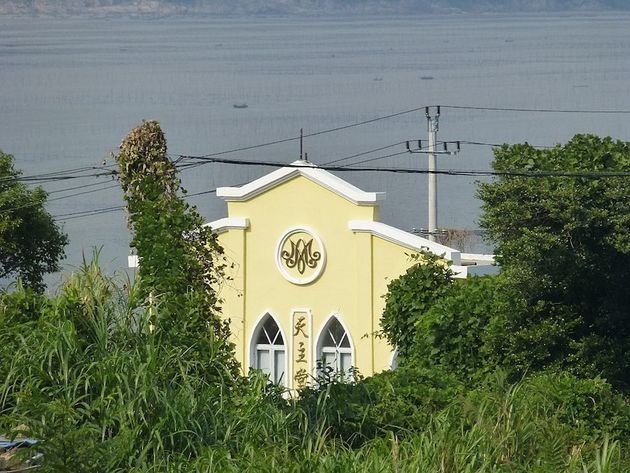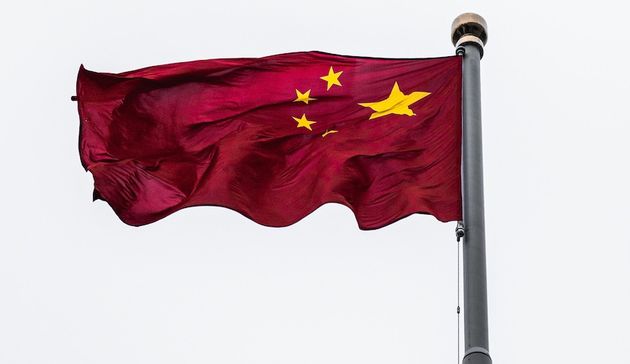“A clash of two empires”: Vatican and China renew their agreement
The agreement on the appointment of bishops will be extended two years. “The price to be paid is immense because the Catholic Church renounces to its independence”.
Protestante Digital · ROME · 14 DECEMBER 2022 · 12:00 CET

The Vatican has announced the extension of its interim agreement with China on the appointment of bishops in the Asian country until 2024.
This decision means that the Holy See will continue to recognise bishops unilaterally appointed by the Chinese Catholic Patriotic Association, resolving part of the historical conflict between the two states.
The events date back to 1951, when Pius XII excommunicated two Beijing-appointed bishops and the Chinese Communist Party (CCP) government expelled the apostolic nuncio (the Pope's ambassador), who moved to Taiwan.
In 2018, Francis and Chinese President Xi Jinping agreed to unblock the situation with an interim agreement for two years, which was renewed in 2020 and now again for another two years.
In the last four years, the Patriotic Church has not unilaterally appointed any more bishops, but the Vatican has appointed six new priests with the approval of the Chinese authorities.
“The Vatican Party is committed to continuing a respectful and constructive dialogue with the Chinese Party for a productive implementation of the Accord and further development of bilateral relations, with a view to fostering the mission of the Catholic Church and the good of the Chinese people”, they said in a statement.
Clashing interests
Both China and the Vatican have specific interests in an agreement that, although “provisional” , has already been in place for four years and may go on for at least six.
For the Vatican, one of those interests is to assimilate Chinese Catholic standard to the Holy See, something that may open doors to other issues.
Cardinal Secretary of State Pietro Parolin, in an interview with Vatican News, pointed out that “it seemed prudent and wise to take into account both the needs expressed by the country's authorities and the needs of the Catholic communities”.
“The heart of the agreement certainly has to do also with the consolidation of good institutional and cultural dialogue, but it mainly concerns aspects that are essential to the daily life of the church in China”, added Parolin.
For China, the agreement unifies native Catholicism and legitimises it in its hitherto isolated Patriotic Church, seen internationally as another state apparatus.
“China’s main interest is in putting religion under the Party’s control. This was clearly indicated by Xi Jinping at the second national conference on religion of 2021 (the first was in 2016). This means all Protestants should join the party-controlled Three Self Church. And all Catholics should join the Patriotic Church”, said the editor in chief of the Chinese human rights watchdog Bitter Winter, Massimo Introvigne,
He explained that “what China really wanted in 2018 was not the agreement on the bishops but what came later: the Vatican’s ‘authoritative suggestion’ to Catholics to join the Patriotic Church”.

Theologian and pastor of an evangelical church in Rome, Leonardo De Chirico warned that “the Vatican seems to have an interest in maintaining good relationships with China. The problem is the cost of it. The Chinese government wants to control the life of religious institutions and the Roman Catholic Church is willing to submit to that condition”.
“On the one hand, the Chinese government wants to bend Rome to its ideology of control; on the other, Rome thinks that in the long run it will be able to bend China to more moderate positions. It is a clash of two ‘empires’ , thinking to be able to benefit from the other and to take advantage from the other”, he added.
Politics rather than religious freedom
The agreement has a strong diplomatic overtone and seeks to extend its duration.
“This Agreement is provisional because we are still in the experimentation phase. As is always the case, such difficult and delicate situations require adequate time for implementation in order to then be able to verify the effectiveness of the result and identify possible improvements”, said Parolin.
Furthermore, “as we know, the outbreak of the Covid-19 pandemic has created understandable obstacles to meetings between the delegations, which are closely monitoring and evaluating the implementation of the Agreement itself. For those reasons, the validity of the Agreement was extended a first time in 2020 and is now extended again”.
He underlined that “as of September 2018, all bishops of the Catholic Church in China are in full communion with the successor of Peter”.
For Introvigne,“from the Vatican’s point of view, the interesting thing is that they were able to proclaim that the largest Catholic schism in the world has been healed”.
“The Patriotic Church is now proclaimed a part of the Catholic Church in full communion with Rome with a degree of autonomy other churches, like the Greek Catholic Church in Ukraine, also have”, he explained.
Introvigne pointed out that “since joining the Patriotic Church is an authoritative suggestion rather than an order, the Vatican considers the conscientious objectors who refuse to do so as Catholics who are making a mistake, but they are not excommunicated, they are still Catholics. However, if they are arrested or deprived of their basic means of living, the Vatican would not support them”.
“The subtle distinction is ignored by the Chinese, for whom those who do not join the Patriotic Church are rebels, both to the Chinese government and to the Vatican and deservedly go to jail”, he added.
According to the organisation Open Doors, which monitors persecution of Christians worldwide, China is the 17th most dangerous country in the world for Christianity and “every church is seen as a threat there”.
De Chirico underlined that “the fact that the Roman Catholic Church acts as a political state makes the confrontation even more interesting. China has 1.4 billion people, the Roman Catholic Church has 1.3 billion members worldwide. Both are political States, very different, but with a global policy and universal ambitions”.

Religion, the final link to subdue in China's state structure?
In contrast to its substantial agreements with African countries, where China has intensified its presence to secure a large part of the extractive industry and macro construction projects on the continent, Beijing's agreement with the Vatican is of a symbolic nature, although it is highly relevant in international politics.
Introvigne explained that “Xi Jinping went back to the system that Mao, who asked Xi Jinping’s father to invent the Patriotic Church, established in the 1950s, then dismantled with the Cultural Revolution when all religion was forbidden”.
In China, “the five bodies administering religion on behalf of the communist party: the Three Self Church for the Protestants, the Patriotic Church for the Catholics, and similar bodies for Muslims, Buddhists, and Taoist, are expected to make sure that Xi Jinping thought is taught in all places of worship alongside with bland references to religion”.
Furthermore, “no missionary or expansive activity is allowed, that minors of 18 should not be taught religion including by their parents, and that religions should be slowly accompanied to their demise”.
For De Chirico, “one way to do it is for the Chinese government to be involved in the approving process of the bishops and therefore it participates in the selection of the leadership”.
“The price to be paid by the Vatican is immense because the Church renounces to its independence in its internal affairs and agrees to comply with the directions imposed by the Chinese regime. A fundamental breach of religious freedom and the separation between church and state is at stake”, warned the theologian.
A Vatican “illusion”?
“Pope Francis […] has decided to continue along this path, not under the illusion of finding perfection in human rules, but in the concrete hope of being able to assure Chinese Catholic communities, even in such a complex context, of the guidance of pastors who are worthy and suitable for the task entrusted to them”, said Parolin.
According to Introvigne, “the Vatican believes that Catholics can at least survive within the Patriotic Church waiting for better times and that the alternative is to be just exterminated”.
Chirico ties it to “Francis’ foreign policy is shaped by the ‘all brothers’ ideology. Both the “Document of Human Fraternity for World Peace and Living Together” (2019) and the 2020 encyclical “Fratelli tutti” (All brothers) are the programmatic documents of the present-day Roman catholic Church”.
“Rome wants to present itself as the only global institution that is capable to foster good relationships with all. On the other hand, global religions recognize that the Pope is the leader of the leaders, thus acknowledging a sort of ‘primacy’ ”, he added.
For the Italian pastor, “Theologically, the implications of the view whereby we are ‘all brothers’ are disastrous. The Pope insists that we all have the same god and we all pray to the same god and that our differences are of minor importance”.
“That is contrary to the evangelical faith whereby while there is an opposition between the God of the Bible and the idols of other religions, Christians are called to be good neighbors and to live in peace with others. We are ‘all brothers’ only with fellow believers in Jesus Christ”, concluded De Chirico.
Published in: Evangelical Focus - world - “A clash of two empires”: Vatican and China renew their agreement
Since you are here…
Evangelical Focus is a news and opinion platform that brings together Christians from across Europe and other parts of the world. We need the support of our readers to make this media project sustainable in the long term. You can support our work! Read about Evangelical Focus’s sustainability here.
Would you like to support the work of Evangelical Focus?
Use one of these methods. You can also transfer your donation to “Areópago Protestante / Evangelical Focus” IBAN: ES8521000853530200278394 (Swift / BIC: CAIXESBBXXX). Subject: “Donation Evangelical Focus”
